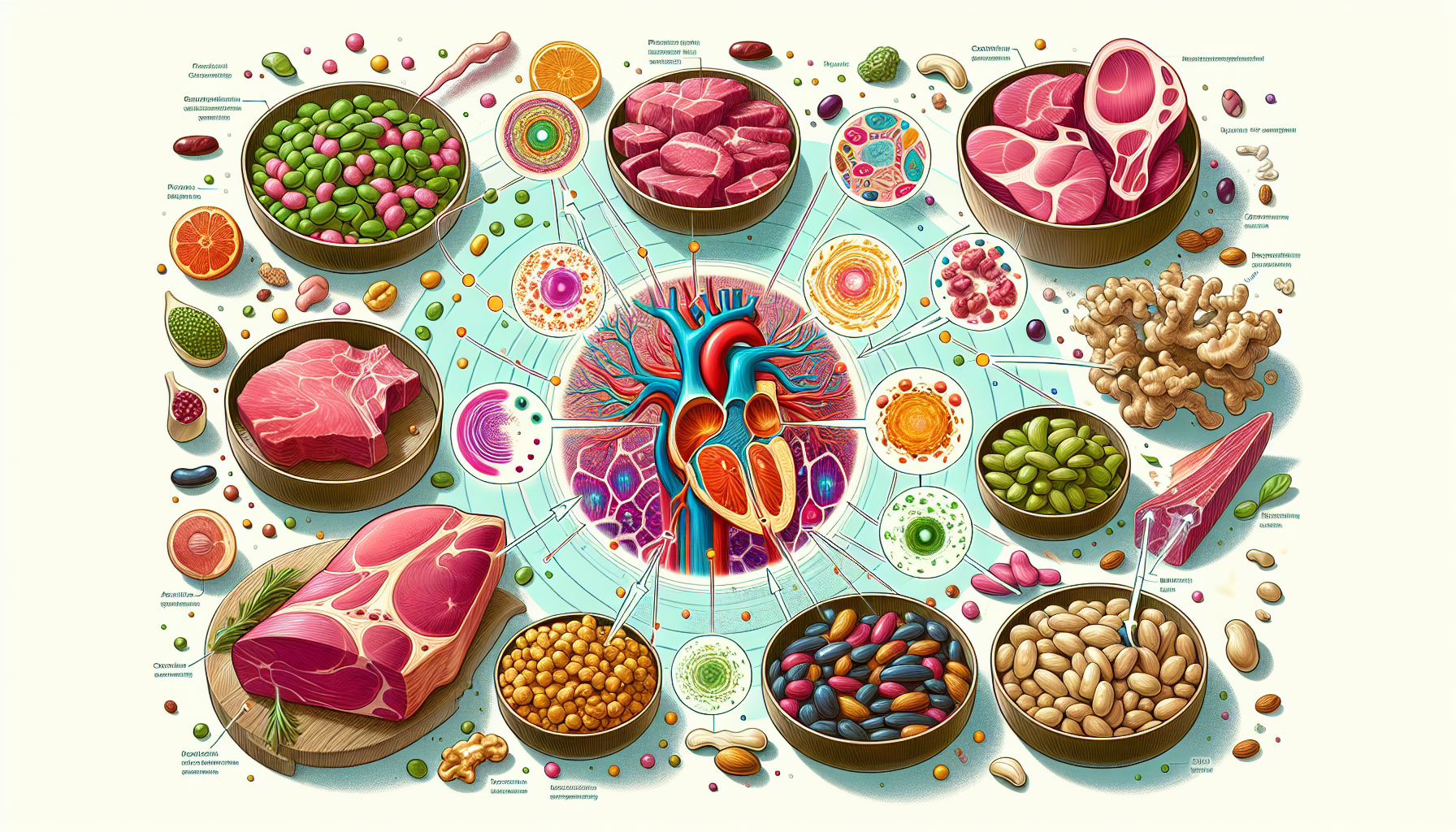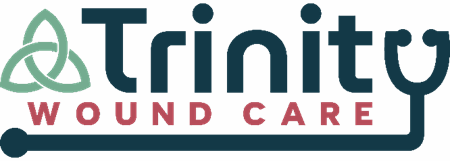Top Supplements for Faster Wound Healing: Your Complete Guide
- Blog
- Blog Detail
Top Supplements for Faster Wound Healing: Your Complete Guide

If you’re looking for ways to heal wounds faster, certain supplements can significantly speed up the recovery process. In this article, we will explore the best supplements for faster wound healing, including essential vitamins, minerals, and proteins. Whether you’re dealing with a minor cut or a more serious injury, understanding these supplements can help you make informed choices for a quicker recovery.
Key Takeaways
- Essential vitamins, minerals, and proteins are critical for optimizing wound healing, with nutrients like Vitamins C, A, E, Zinc, and Iron playing pivotal roles.
- Incorporating a balanced diet and hydration is crucial, as proper nutrition supports tissue repair and boosts immune function during recovery.
- Consulting healthcare professionals for personalized care plans is important for managing chronic wounds effectively, with specialized clinics like Trinity Wound Care providing tailored support.
Introduction

Smart food selections and nutritional supplements greatly influence wound healing efficiency.
Imagine your body as a well-oiled machine, constantly working to repair itself. When an injury occurs, the body’s inflammatory phase kicks in, initiating the wound healing process and triggering an inflammatory response to help the wound heal.
Minerals support critical bodily functions like oxygen delivery, immune response, and bone health, which are essential for wound healing. Supplements can accelerate this process by supplying necessary nutrients.
This guide explores how specific supplements can enhance the natural healing process, helping wounds heal more efficiently. Understanding these supplements enables readers to make informed choices for better recovery and optimal health.
Essential Vitamins for Wound Healing

Certain vitamins are crucial for effective tissue repair during wound healing. A diet rich in these vitamins supports recovery. Supplementing with the right vitamins can address deficiencies that complicate healing, particularly in chronic wounds.
Key vitamins such as Vitamin C, Vitamin A, and Vitamin E aid in creating collagen for tissue repair and support overall wound management. Let’s dive deeper into the specific roles of these essential vitamins.
Vitamin C
Vitamin C is essential for collagen synthesis and immune function, making it a critical nutrient for wound recovery. This vitamin improves the body’s ability to absorb iron, further enhancing the benefits of a diet rich in this nutrient. Good sources of Vitamin C include citrus fruits, bell peppers, and supplements.
Adequate Vitamin C intake promotes new tissue formation and strengthens the immune response, significantly supporting wound healing.
Vitamin A
Vitamin A is a powerful antioxidant that plays a crucial role in the inflammatory process and collagen synthesis, both of which are essential for wound healing. The best sources of Vitamin A include sweet potatoes, leafy vegetables, and other colorful fruits and vegetables. Consuming Vitamin A through food sources is often preferred over supplements to avoid potential health risks.
Vitamin A bolsters natural defenses and supports efficient tissue repair.
Vitamin E
Vitamin E is crucial for wound healing, providing various benefits that support the body’s repair processes. As an antioxidant, Vitamin E protects cells from oxidative stress, contributing to a healthy healing environment. It also supports the growth of new tissue, aiding in the overall healing of wounds.
Good sources of Vitamin E include nuts, seeds, and dietary supplements. Adequate Vitamin E intake enhances the body’s repair mechanisms and maintains healthy tissue.
Important Minerals for Wound Healing

Minerals are crucial for wound healing, supporting functions like oxygen delivery, immune response, and collagen production. Adequate mineral intake enhances the body’s ability to heal wounds effectively.
Let’s explore the importance of Zinc and Iron, two key minerals in wound management.
Zinc
Zinc is essential for DNA replication, immune response, collagen production, and epithelialization, making it a crucial nutrient for the wound healing process. This mineral plays a significant role in enhancing immune function, which is vital during the healing process.
Animal sources, particularly seafood and beef, provide zinc that is more effectively absorbed compared to plant-based sources. Whole grains and proteins such as eggs, dairy, and meat are recommended dietary sources to enhance zinc intake.
Iron
Iron is essential for oxygen transport, tissue perfusion, and collagen synthesis, which are critical for effective wound healing. A deficiency of iron can negatively impact the speed and quality of wound healing. Good sources of iron include plant-based foods, legumes, and red meat, which contribute to adequate iron intake for healing.
Sufficient iron levels promote efficient oxygen delivery to tissues and support strong, healthy scar tissue formation.
Protein and Amino Acids for Tissue Repair

Proteins and amino acids are essential for cell health and development, playing a critical role in wound healing. Inadequate protein intake can hinder collagen formation and slow recovery. High-protein foods support tissue repair during recovery.
Let’s delve into the specific roles of Whey Protein and Glutamine, two important proteins for wound healing.
Whey Protein
Whey protein is rapidly absorbed and beneficial for muscle recovery and enhancing immune function. Recognized for its quick absorption, whey protein supports muscle recovery and immune function, making it an excellent addition to the diet during the wound healing process.
Whey protein supplements ensure the body receives enough protein to repair damaged tissues and promote overall recovery.
Glutamine
Glutamine plays a critical role in wound healing by protecting against infections and inflammatory complications. During the healing process, glutamine is involved in various metabolic processes that support immune function and cell proliferation. Arginine and glutamine are among the amino acids important for effective wound healing.
Glutamine in the diet enhances the body’s wound healing ability and supports overall health.
Omega-3 Fatty Acids
Research indicates that omega-3 fatty acids possess anti-inflammatory properties beneficial for wound healing. These fatty acids can reduce inflammation and promote faster healing, making them valuable in wound treatment. Studies have demonstrated that omega-3 dressings can lead to quicker healing of diabetic foot ulcers and lower infection risks compared to standard dressings.
Foods high in omega-3 fatty acids, like fish and flaxseeds, support the body’s natural healing processes.
Herbal Supplements for Wound Healing
Herbal supplements are gaining attention for their potential to enhance wound healing through natural properties. Herbal supplements like curcumin and aloe vera can significantly support wound healing through their beneficial properties.
These natural remedies can complement traditional treatments and provide additional support for the body’s healing mechanisms.
Curcumin
Curcumin, derived from turmeric, has notable anti-inflammatory and antioxidant effects that promote faster wound healing. This herbal supplement influences the inflammatory and proliferative phases of the wound healing process.
However, studies exploring curcumin’s effects on wound patients remain scarce or controversial, indicating the need for further research. Curcumin in the diet supports the body’s natural healing processes.
Aloe Vera
Aloe vera is known for its soothing and healing properties, often utilized in skin care and medicinal applications. The gel found in aloe vera leaves contains compounds that promote tissue repair and reduce inflammation. Studies suggest that aloe vera can accelerate the healing process of open wounds by enhancing cell regeneration.
Aloe vera is also effective in reducing pain and redness associated with burns while promoting faster healing. Aloe vera in wound care routines supports the natural healing process.
The Role of Hydration in Wound Healing
Hydration is essential for maintaining skin elasticity and overall health, crucial for effective wound healing. Dehydration can slow recovery, while proper nutrition supports efficient healing.
Moist wounds lower infection risks and reduce reliance on antibiotics. Adequate hydration enhances the body’s repair ability and promotes efficient wound healing.
Nutritional Tips for Enhanced Healing
Nutrition significantly influences the speed and quality of wound healing. Poor nutritional habits during healing can prolong recovery and increase the risk of complications. Understanding the role of specific nutrients can empower individuals to make informed dietary choices to support their recovery.
Adequate protein intake boosts the immune system and reduces infection risks during wound recovery. Here are some nutritional tips for enhanced healing.
Balanced Diet
A balanced diet is essential for wound healing, providing the body with the necessary nutrients to repair tissues. Whole grains are an excellent choice. They offer healthy vitamins, minerals, fiber, carbohydrates, some protein, and healthy unsaturated fats.
Engaging with healthcare providers ensures patients receive tailored advice for their specific nutritional needs post-injury. Including a variety of food sources in the diet can ensure that the body gets enough nutrients to support the healing process.
Caloric Intake
Healing demands more calories than usual for recovery energy. Adequate caloric intake is essential for wound healing.
Choose calorie-dense foods with nutritional value to ensure sufficient nutrition during recovery. If you have trouble eating during the healing process, try to eat smaller, more frequent meals to maintain caloric intake. Patients may want to ask their doctor about their specific caloric needs during recovery.
Adequate caloric intake provides the energy needed for effective healing.
Professional Wound Care Guidance
Many patients struggle with chronic wound that don’t heal properly, highlighting the need for professional intervention. Expert wound care is crucial for effective healing wound management.
Trinity Wound Care offers specialized services that focus on comprehensive wound management and patient education. By allowing professionals to assist in healing wounds, patients can benefit from personalized treatment plans and advanced techniques for effective wound healing.
Let’s explore the importance of consulting healthcare providers and the services offered by Trinity Wound Care.
Trinity Wound Care Services
Healthcare providers such as the wound care specialists at Trinity Wound Care will help you create personalized care plans and optimal healing strategies.
Our team provides personalized treatment plans and utilizes advanced techniques for effective wound healing. If you or a loved one is dealing with chronic wounds or severe injuries, consider reaching out to Trinity for professional support and guidance. Our expert team can help ensure that your wounds heal properly and efficiently..
Summary
In conclusion, the right supplements can play a significant role in enhancing the wound healing process. Vitamins such as Vitamin C, Vitamin A, and Vitamin E, along with minerals like Zinc and Iron, are essential for effective wound recovery.
Proteins and amino acids, including Whey Protein and Glutamine, support tissue repair, while Omega-3 Fatty Acids and herbal supplements like Curcumin and Aloe Vera provide additional benefits. Proper hydration and a balanced diet are also crucial for maintaining overall health and supporting wound healing.
By consulting healthcare providers like the team at Trinity Wound Care and seeking professional wound care guidance, patients can ensure that their wounds heal efficiently and effectively. Remember, taking a proactive approach to wound care can make a significant difference in your recovery journey.
Contact the team at Trinity Wound Care and make an appointment today!
Frequently Asked Questions
Why is Vitamin C important for wound healing?
Vitamin C is vital for wound healing because it supports collagen synthesis and immune function, both of which are critical for tissue repair. Additionally, it enhances iron absorption, further aiding the body’s recovery.
What are the best sources of Vitamin A for wound healing?
The best sources of Vitamin A for wound healing are sweet potatoes, leafy greens, and colorful fruits and vegetables. Incorporating these foods into your diet is a safe and effective way to support recovery.
How does Zinc support wound healing?
Zinc supports wound healing by facilitating DNA replication, collagen production, and immune function, all of which are essential for effective recovery. Its role in epithelialization further underscores its importance in the wound healing process.
What role does hydration play in wound healing?
Hydration is crucial for wound healing as it maintains skin elasticity and lowers infection risk, ultimately supporting faster recovery. Keeping wounds moist can also decrease the need for antibiotics.
Why is it important to consult healthcare providers for wound healing?
Consulting healthcare providers is essential for personalized care plans and optimal wound healing strategies. They can identify risk factors for delayed healing and recommend necessary nutritional supplements tailored to your needs.
PERSONALIZED HEALTHCARE
Bringing Healthcare to Your Doorstep
Receive custom-tailored treatment plans that include initial care, ongoing follow-ups, and comprehensive treatment for underlying causes, delivered to you no matter where you reside.



About Us
Trinity Wound Care is dedicated to providing compassionate, comprehensive wound care and support services, ensuring every patient receives personalized treatment for optimal healing and well-being.
Quick Links
Contact Info
- (725) 205-2457
- admin@trinityhealthlv.com
- 6655 W. Sahara Ave A218, Las Vegas, NV 89146